Doctors are on social media, and in a big way! I recently attended the American Thoracic Society Annual Meeting, or #ATS2018. As I have before, I'm giving a visual update for those who are interested in seeing what doctors are talking about Twitter, what makes a doctor an influencer on social media, and the magnitude of conversation across the globe. Here we go:
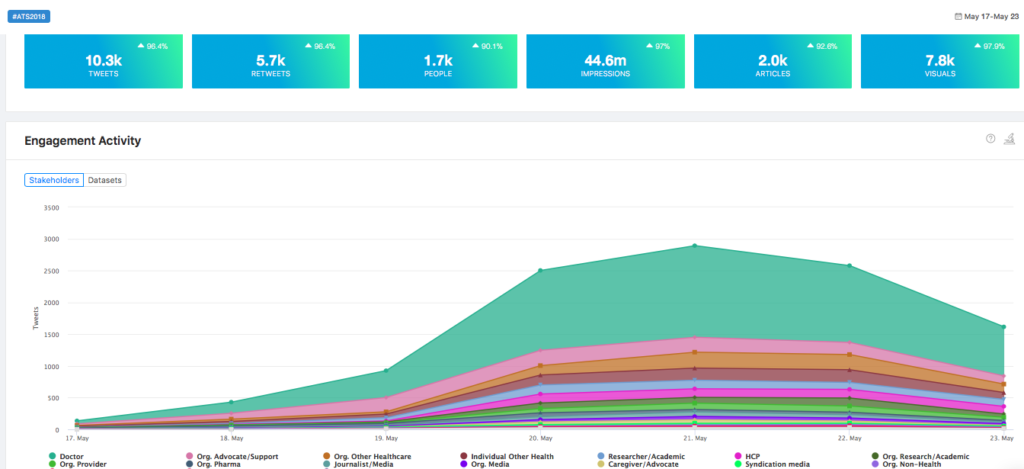
Here we see a summary of the Twitter activity. Over 1,700 unique user accounts participated, which is huge! More than 10,000 unique tweets were posted, and those included 2000 links to articles and 7800 visuals. As you can see from the graph, the vast majority of participants are physicians, clinicians, and researchers.
Below is a community map, filtering for the top 1000 users.
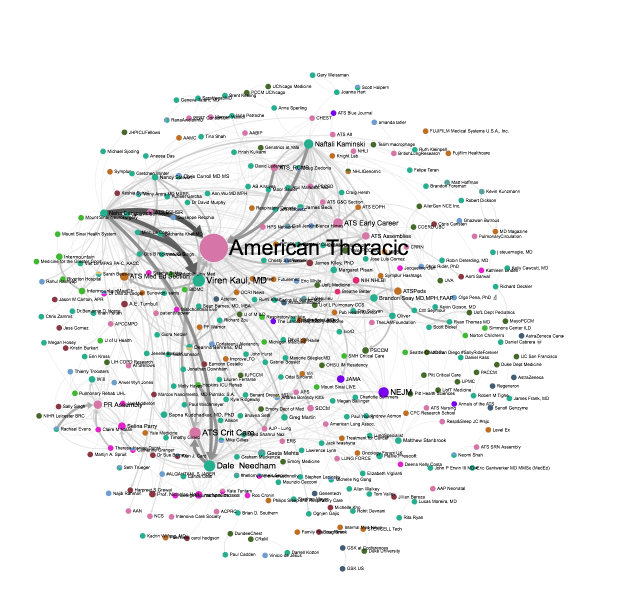
Zooming in to the top 200, we can see a bit more granularity around the direction and magnitude of the conversations among the physicians on social media: 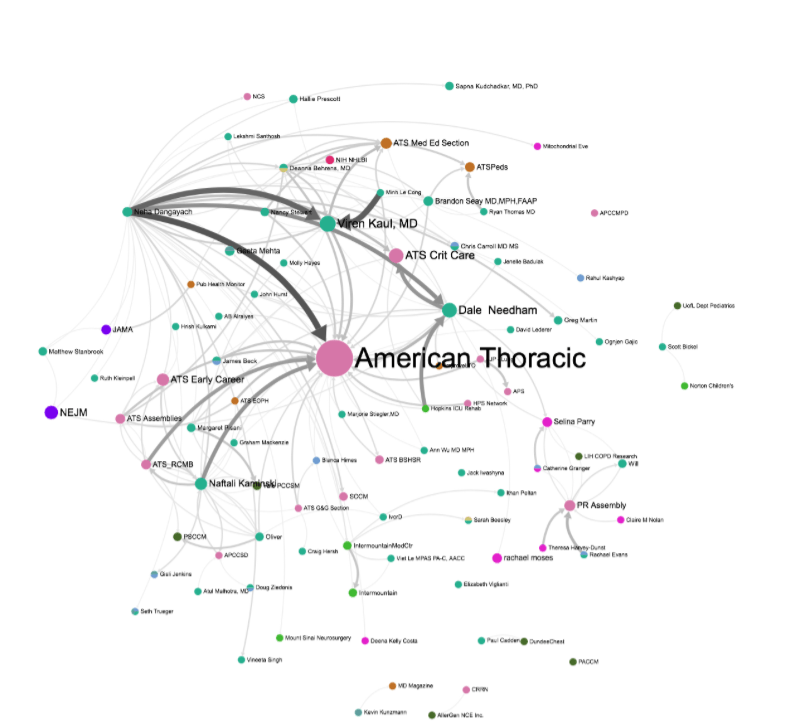
So, who are these doctors using social media at the conference? And, what makes a physician influencer on social media? Symplur measures this in four distinct ways: by user activity (the number of their tweets), by the number of times a user is mentioned by others, by impressions (accounting for the number of followers a user has, in addition to their tweet activity), and by a proprietary rank that meshes these together and includes data about the historical relevance of the user to the conversation. Check it out:
Healthcare social media influencers by tweet activity at ATS2018:
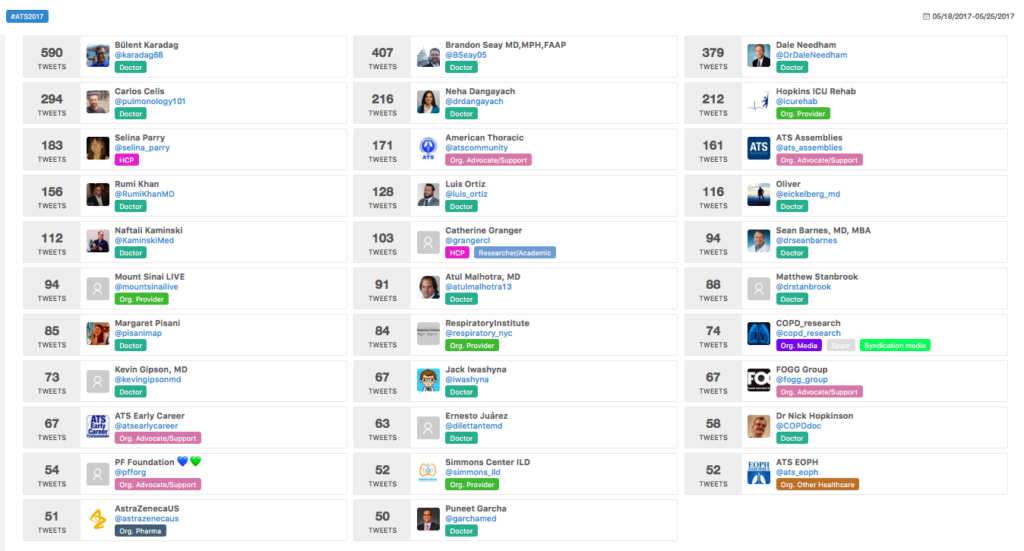
Healthcare social media influencers by mentions:
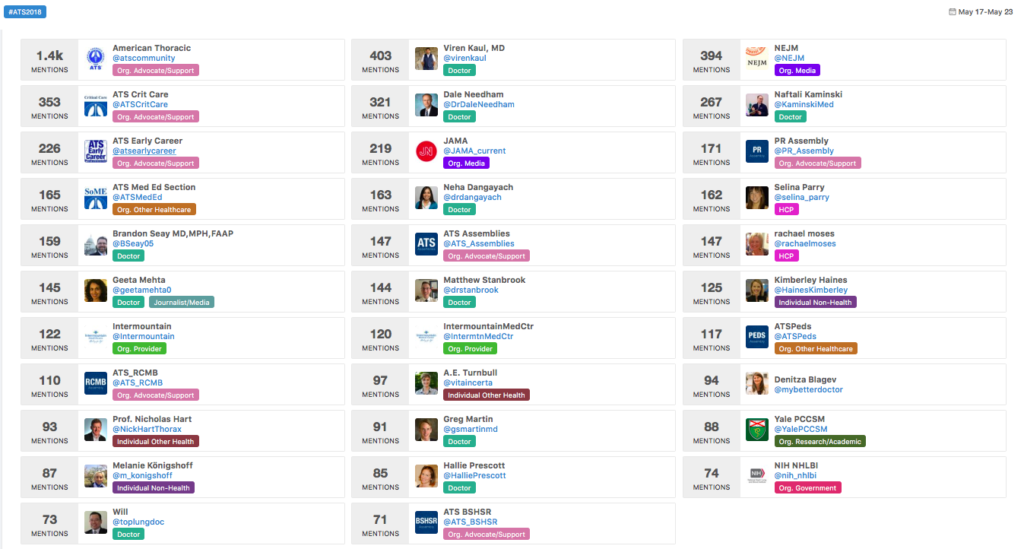
Healthcare social media influencers by impressions:
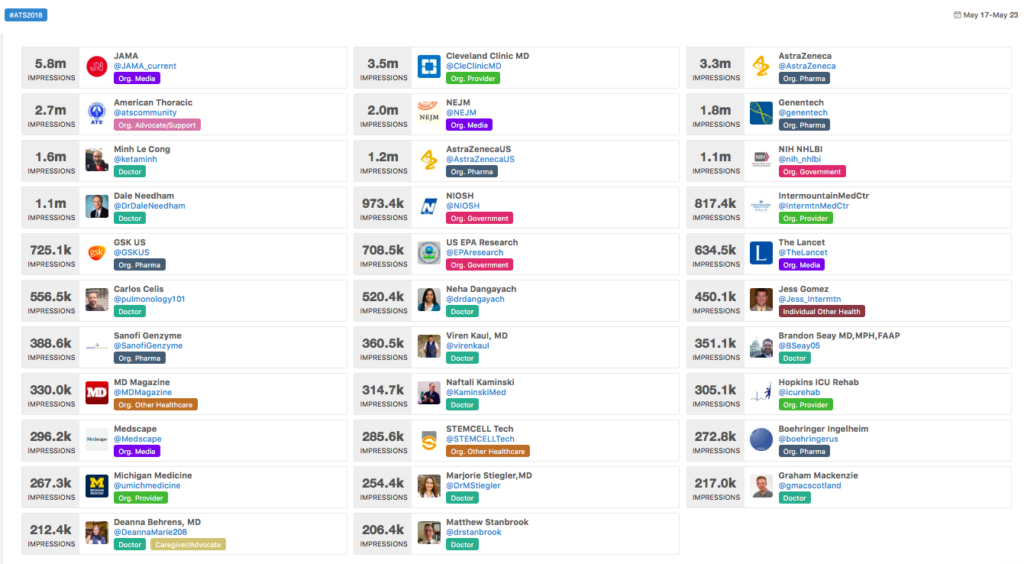
And finally, influencers by the Symplur rank:
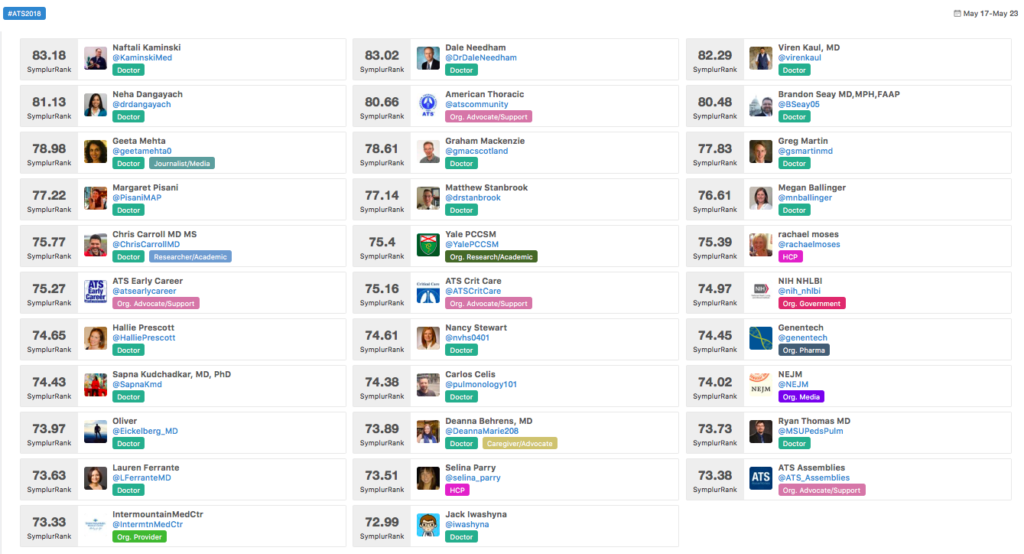
Now that we see who is doing the talking, let's turn to what doctors on social media are talking about at the #ATS2018 conference.
Here are the top articles trending as a result of being shared by users who are engaging with the #ATS2018 hashtag. JAMA has the #1 most shared articled, but otherwise, NEJM is dominating!
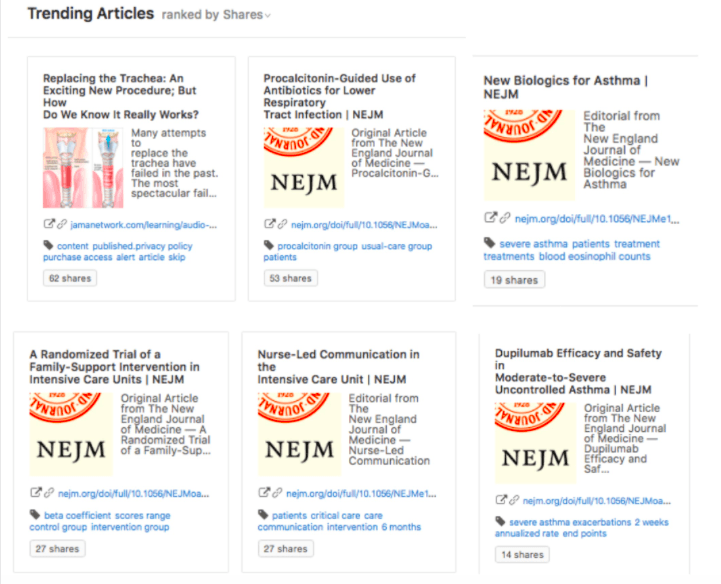
As for the tweets that were ranked by the algorithm as being most important (by number of RTs as well as influencer data of the users who do the retweeting), we can see some interesting academic controversy over whether to cite the senior or the first author on a paper, which originated with Dr. Geeta Mehta.
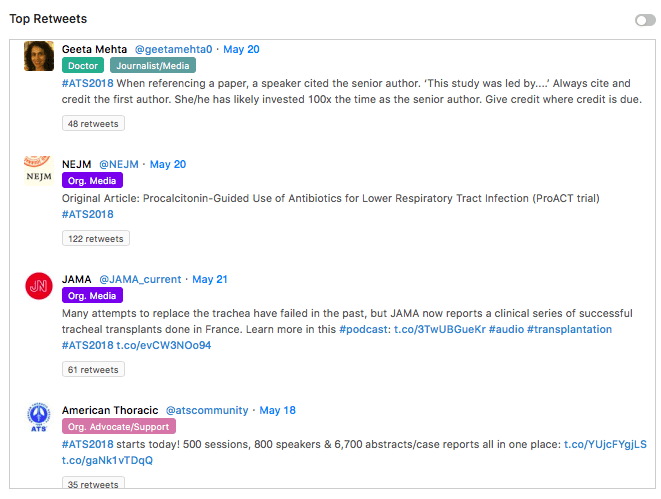
In addition, we see two hot topics of the year - physician burnout and women in medicine - are represented in the most highly ranked retweets.
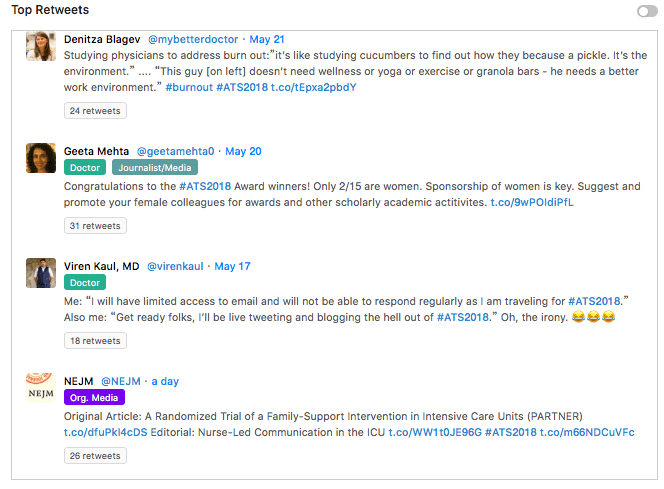
Back to some visuals of the social media physicians and other #ATS2018 participants. Here's a collage of the top 500. Do you see anyone you know, or maybe yourself?
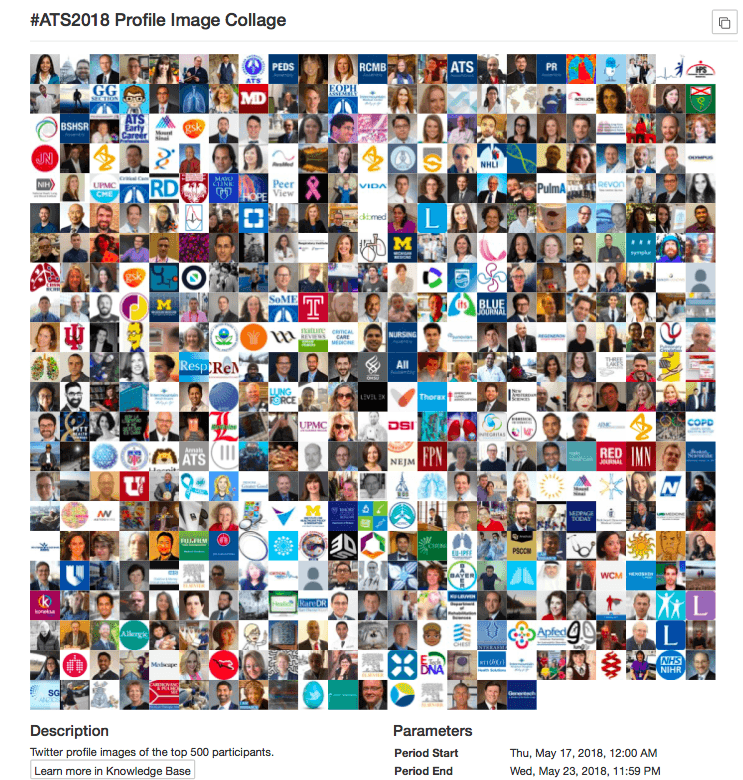
And what's the direction of conversation? What are the communities? Here we can see the top 200 accounts and their conversation connections. Of note, if we look specifically at an account, we get more granularity. In this example, we see ATSMedEd an the community of physicians on social media engaging around that topic at ATS:
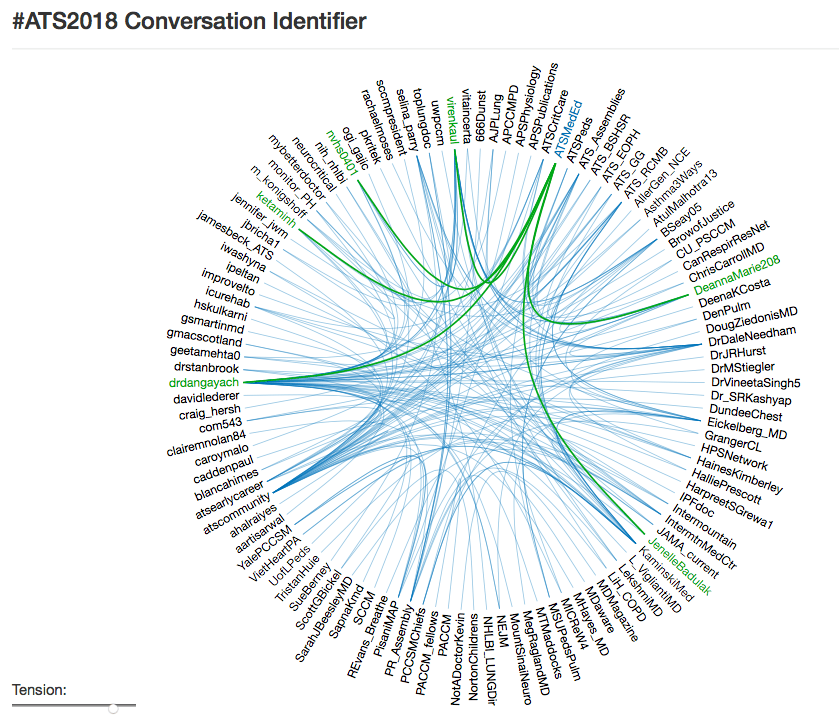
Where in the world are these tweeters? Everywhere! Including, apparently, someone from Antarctica!
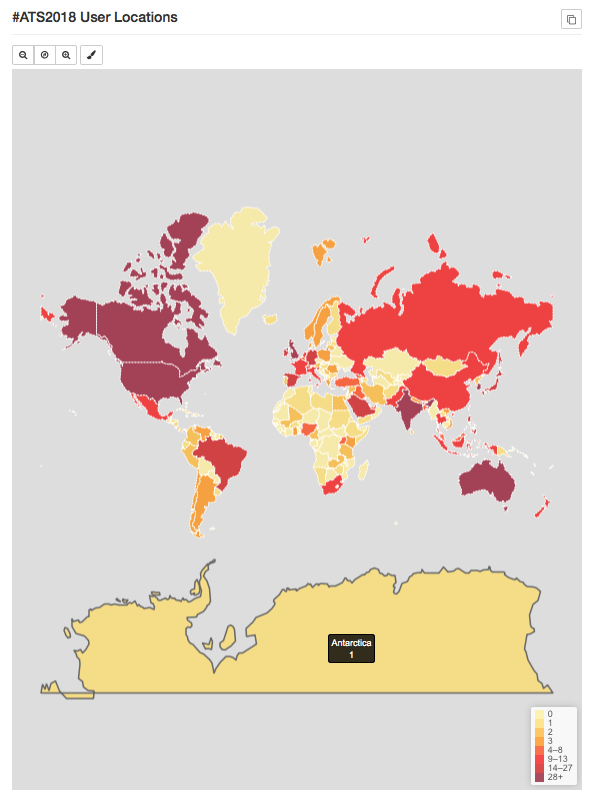
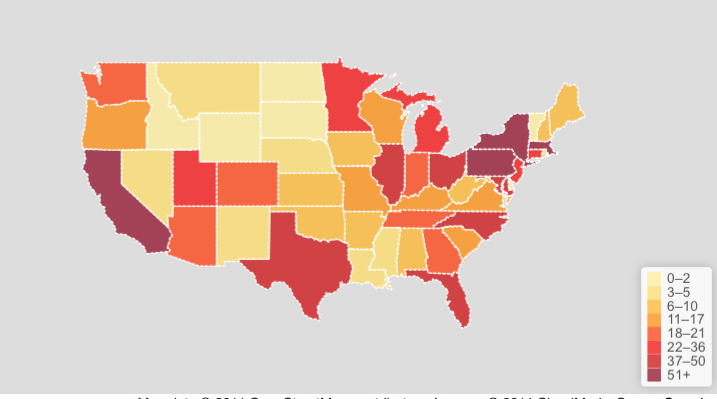
For comparison, let's take a top line look at #ATS2017. Lots of great engagement last year too! I should mention that although the summary metrics are similar, at the time of this writing, there is still some post-ATS activity going on, which I haven't captured (go back to the top, and you'll see that our graph has not yet returned to baseline).
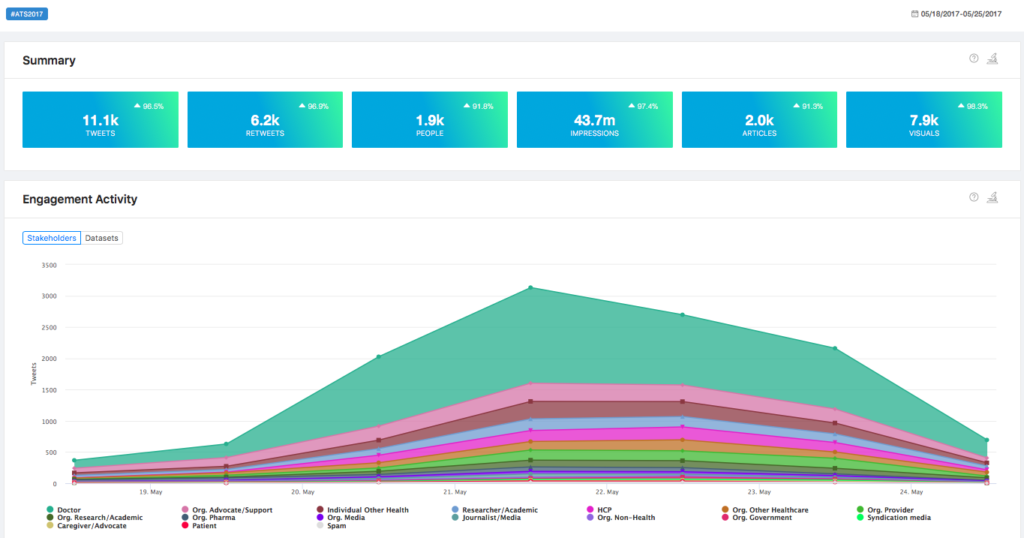
So, what were the hot topics in 2017? Dr. Eric Topol and others are focused heavily on sepsis. The user @lungconsultant shared a journal cover about smoking. For those interested, I've attached his actual image below. Finally, one of the top tweets is about how doctors can use social media in academics.
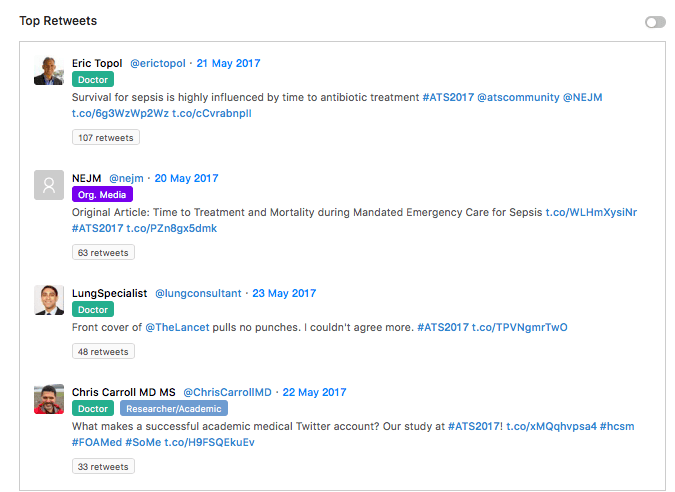
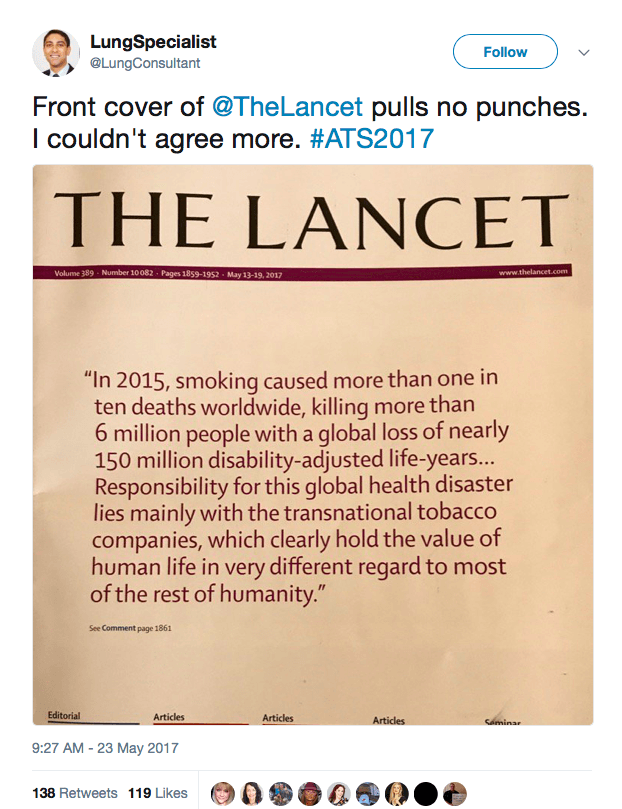
By tweets, we see a lot of the same physician influencers pushing the social media agenda forward. Given the success of the #ATS2018, I'd say they did a great job!

So there you have it - the who, what, and where about tweeting the meeting for #ATS2018 and #ATS2017.
Here's a question for you: which is the most important metric of engagement that defines an influencer? Symplur offers their rank based on their internal algorithm, but I'm wondering what you think about the relative importance of tweet activity, mentions, replies, retweets, followers, and whether followers are considered influencers. Please let me know your thoughts in the comments!
As always, if you want to check out my video series on social media for physicians, stop by my Facebook page.







